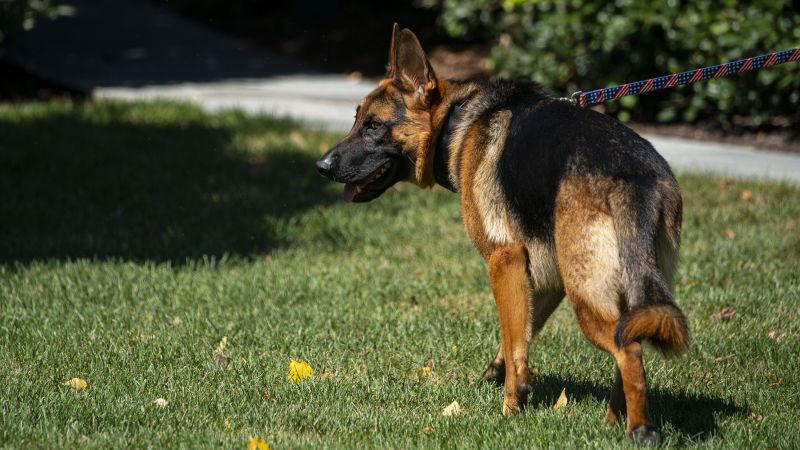South Dakota Governor Kristi Noem has generated controversy by suggesting in her new book, “No Going Back,” that President Joe Biden’s dog, Commander, should be removed from the White House grounds, referencing a tragic incident on her farm where she shot a working dog. Noem included this as a potential day one priority for her if she were to become president in 2025, stating that Biden’s dog should not be on the grounds while her own dog, Foster, would be welcome.
Commander, the Biden family’s German shepherd, has faced scrutiny for biting Secret Service personnel in 24 separate incidents at the White House and other locations. This behavior led to the dog being removed from the White House in October. Noem’s comments came during a Sunday appearance on CBS’ “Face the Nation,” where she questioned why Biden’s dog had not faced consequences for its actions, particularly considering the number of people it had harmed.
During the interview, Noem raised the question of accountability for President Biden regarding his dog’s behavior, suggesting that there should be a threshold for the number of people harmed before action is taken. When asked directly if she believed the dog should be shot, Noem reiterated the need for accountability and did not directly answer the question. Her remarks have drawn criticism for their perceived insensitivity and harshness towards the Biden family’s pet.
The controversy surrounding Noem’s comments highlights the ongoing debate over responsible pet ownership and consequences for animal behavior. While Noem’s perspective may resonate with some who prioritize safety and accountability, others have criticized her for appearing callous and lacking empathy towards animals. The incident serves as a reminder of the challenges of public figures addressing sensitive topics and the need for thoughtful and compassionate discourse.
As Governor Noem continues to face backlash over her remarks about President Biden’s dog, it remains to be seen how she will address the fallout from her controversial statements. The intersection of politics and pet ownership has sparked a divided response, with some defending her stance on accountability while others condemn her for suggesting harsh action towards the canine companion of a political figure. This incident sheds light on the complexities of public discourse and the challenges of navigating controversial subjects in the public eye.













